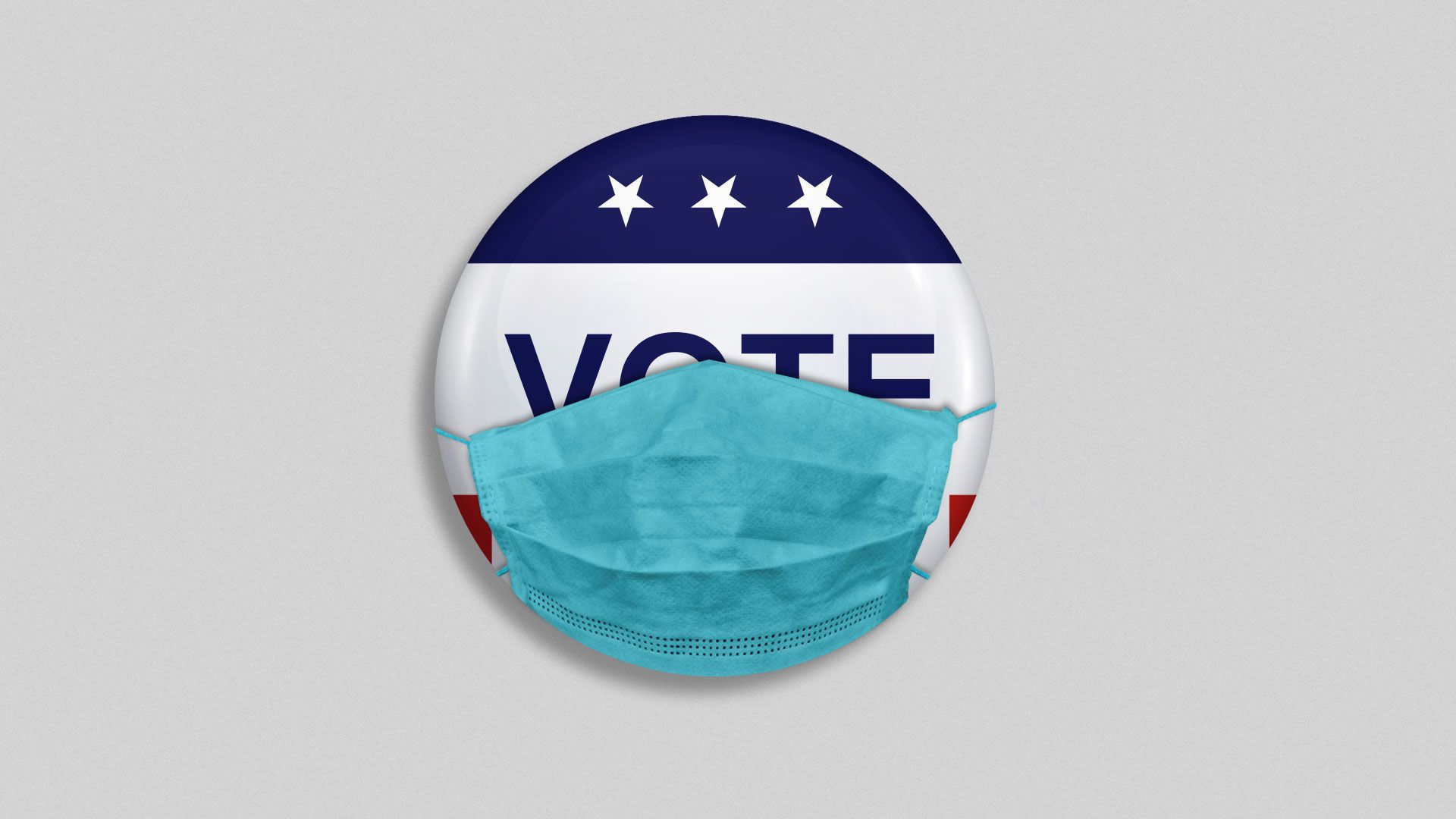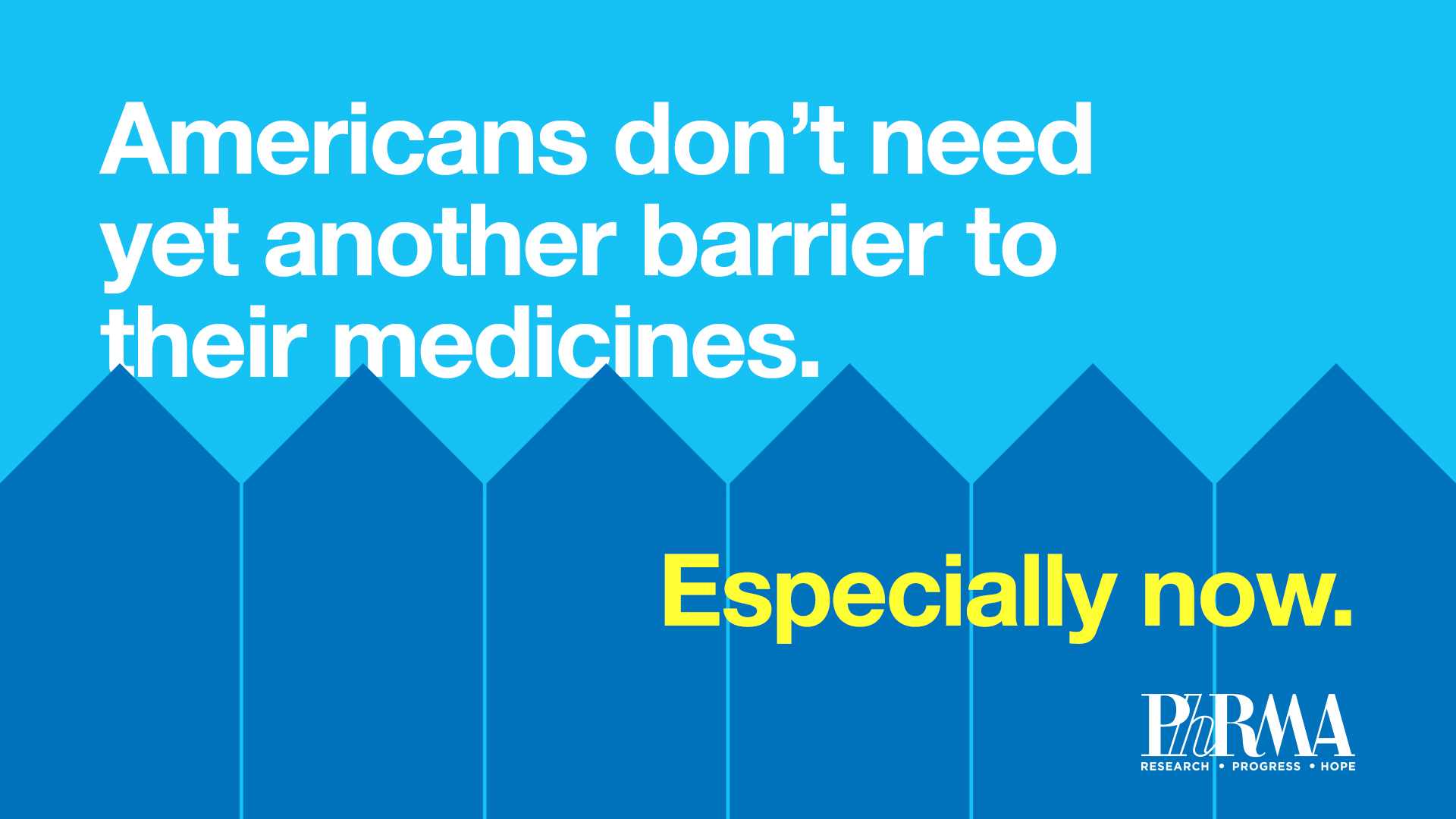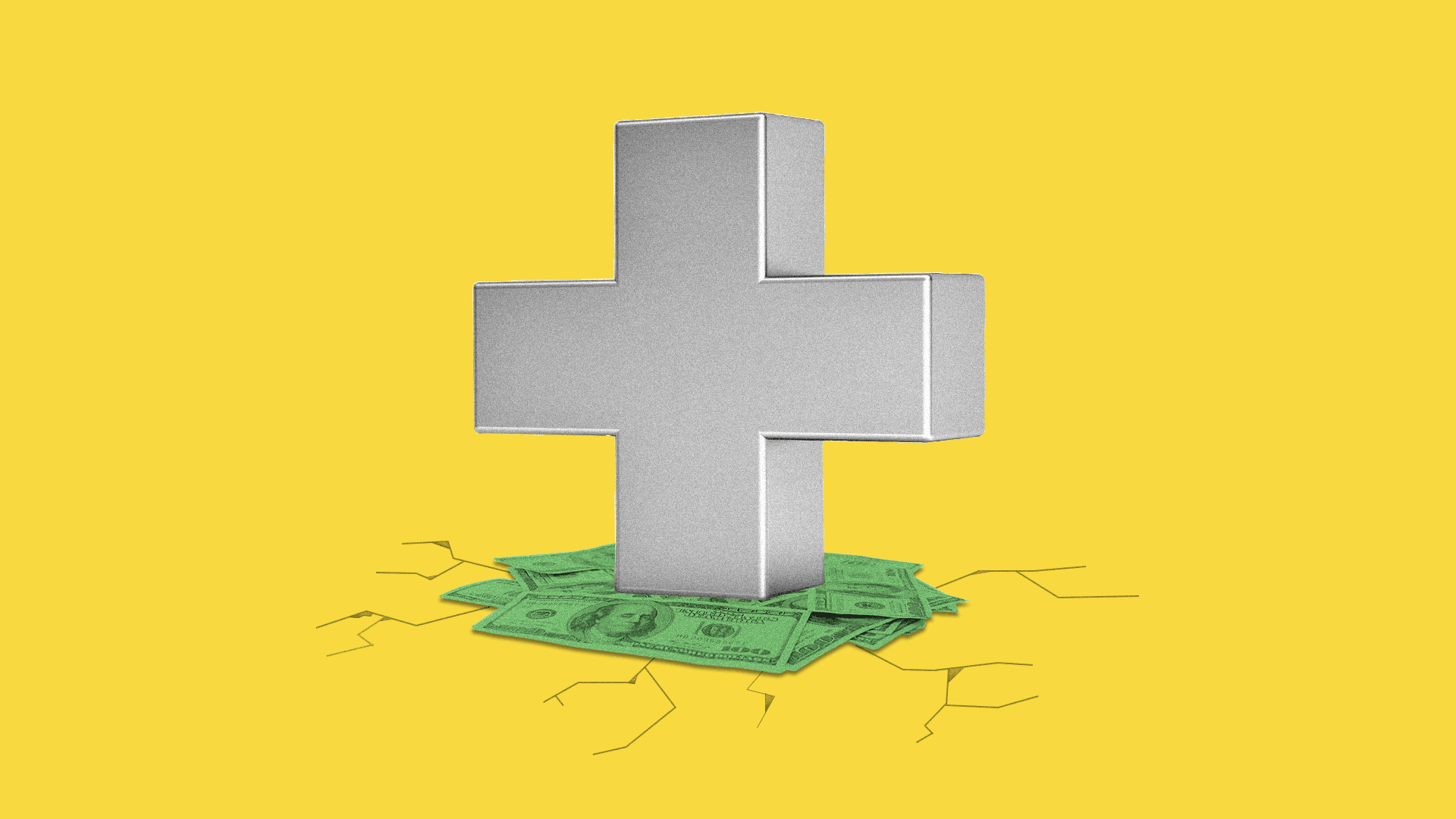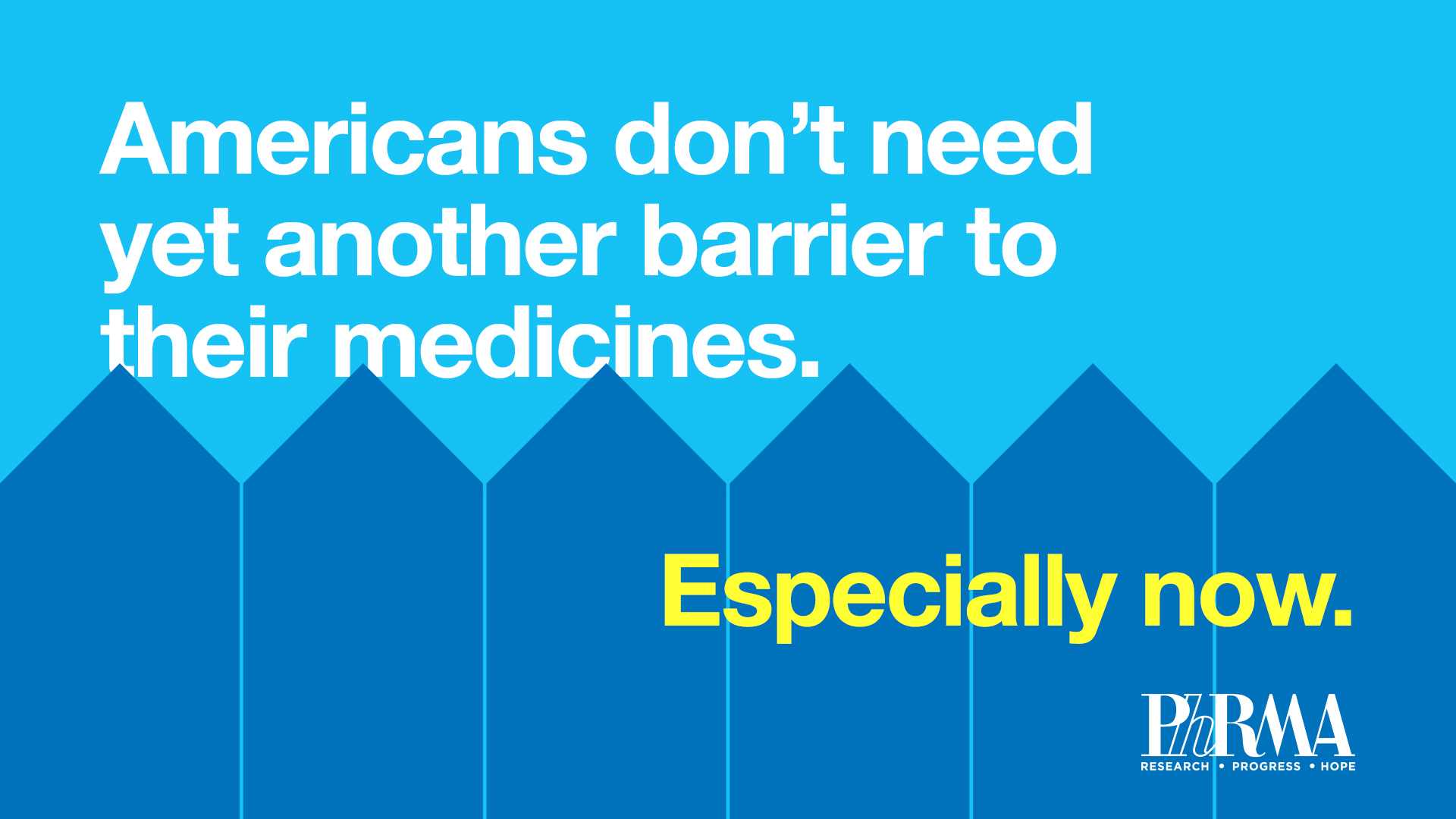| | | | | | | Presented By PhRMA | | | | Axios Vitals | | By Tina Reed · Apr 14, 2022 | | Good morning, Vitals readers. Today's newsletter is 885 words or a 3-minute read. | | | | | | 1 big thing: Kids' mental health at risk of becoming America's next culture war |  | | | Illustration: Aïda Amer/Axios | | | | As more states and school districts move to address children's mental health, some parents and activists are making school-based support programs a political flashpoint, Axios' Caitlin Owens and Alison Snyder report. Why it matters: The pandemic has created a greater sense of urgency around children's mental health, but statistics have been trending in the wrong direction for years, with sometimes tragic consequences for families and communities. - A recent CDC survey found U.S. teenagers are reporting high levels of mental distress, risky health behaviors, economic instability and abuse.
State of play: School-based efforts that have been shown to support kids' mental, social and emotional health are getting pulled into a broader debate about what happens in public school classrooms and guidance counselors' offices. - Critics say they put school officials in inappropriate roles and could indoctrinate students in progressive thinking.
Driving the news: High-profile state legislation, like Texas' law equating transgender care as child abuse and Florida's law prohibiting "classroom discussions about sexual orientation or gender identity" before fourth grade have sparked outrage among mental health professionals concerned about their impact on children and families. - The reach of such legislation — as well as grassroots campaigns and local school district disputes — goes beyond issues of sexuality and gender identity.
- Florida's law, for example, requires schools to give parents an opt-out from available mental and physical health services and to notify parents if there's a change in services or monitoring surrounding a student's health and well-being, per the NYT.
Yes, but: Most states are moving in the opposite direction, shoring up school- and community-based mental health care. - As of March, at least 22 states had enacted laws that support children's mental health, including a mix of red and blue states, according to the National Academy for State Health Policy.
Go deeper. |     | | | | | | 2. U.S. COVID cases on the rise again |  Data: N.Y. Times; Cartogram: Kavya Beheraj/Axios After two months of plummeting COVID cases across the U.S., the virus is on the rise again, with the northeast accounting for many of the new cases, Axios' Kavya Beheraj and I report. The big picture: We knew this was coming. Now it's just a matter of seeing how large an impact this surge of the BA.2 subvariant of Omicron has in the U.S. By the numbers: Nationwide, there were an average of more than 31,500 cases, up 14% from the nearly 28,000 cases reported two weeks ago. - Cases are on the rise in 27 states, plus the District of Columbia.
- The northeast, in particular, is seeing some of the highest case rates, such as New York, which had 25.7 cases per 100,000 people. Officials in New York said Wednesday two new subvariants of BA.2 are circulating there, which may explain why New York has become a hot spot, the New York Times reported.
- Rhode Island had case rate with 32.1 new cases per 100,000 people.
- Several Southern states continued reporting drops in cases, including North Carolina which had 1.7 new cases per 100,000 people.
There were about 530 deaths a day, down 24% from the about 700 deaths a day two weeks ago. Share this story. |     | | | | | | 3. Swing voters OK with Philly mask mandate |  | | | Illustration: Eniola Odetunde/Axios | | | | Pennsylvania swing voters were largely accepting and, in some cases, enthusiastic about Philadelphia's decision to reinstate its mask mandate — the first for a major American city post-Omicron — Axios' Shane Savitsky writes about the latest Axios Engagious/Schlesinger focus groups. Why it matters: These voters are still dealing with the impacts of the pandemic, even if COVID isn't their top issue the way it was a few months ago. What they're saying: One supporter of the city's move, Judy P., 59, said as someone who lives with an immunocompromised person, "I feel it's the only way to keep everybody safe. ... Everybody should be used to it by now. I just don't feel it's that much of a burden anymore." - The other side: An opponent, David V., 40, said, "If you want to wear a mask, wear a mask. But don't punish people or shame people who don't want to wear a mask. It's your choice. Do what you want."
Even so: Some public health experts say they disagree with the return of Philly's mask mandate, saying other cities shouldn't follow suit at this moment. |     | | | | | | A message from PhRMA | | Voters want Congress to address health insurance | | |  | | | | Many Americans reject so-called government "negotiation" once they learn it could sacrifice access, choice and innovation. The story: Respondents find health care coverage costs unreasonable and a top priority health care issue for policymakers to address today. Read more in the new survey. | | | | | | 4. The cost of MS |  | | | Illustration: Aïda Amer/Axios | | | | The economic cost of multiple sclerosis, or MS, was about $85.4 billion in the U.S. in 2019, according to research published Wednesday in the online issue of Neurology. Driving the news: According to the report, MS has a direct medical cost of $63.3 billion and indirect and non-medical costs of $22.1 billion. - Retail prescription medication (54%), clinic administered drugs (12%), medication and administration and outpatient care (9%) were the three largest components of the direct costs.
- Lost earnings due to premature death, lost productivity and absenteeism were the largest components of indirect costs.
- Researchers also found the average annual excess medical costs per person with MS were about $65,600.
|     | | | | | | 5. Catch up quick | | ⚖️ The trial of a doctor accused of killing 14 patients with "excessive" fentanyl doses is underway in Ohio this week. (Washington Post) 👀 Lawmakers on Capitol Hill, as well as a federal watchdog, are starting to take a much harder look at private equity ownership of nursing homes. (KHN) 🧠 Yet another study has come out linking the value of exercise to our brain health. This time, the study suggests cardiovascular health may protect brain volume by keeping insulin and BMI levels low. (Neurology) |     | | | | | | A message from PhRMA | | Out-of-pocket costs create significant barriers to care | | |  | | | | New data show that 35% of insured Americans spent more on out-of-pocket costs than they could afford in the past month. The story: Many patients are experiencing an insurance system that isn't working for those who need care. Learn how insurance is leaving patients exposed to deepening inequities. | | |  | It's called Smart Brevity®. Over 200 orgs use it — in a tool called Axios HQ — to drive productivity with clearer workplace communications. | | | | | | Axios thanks our partners for supporting our newsletters. If you're interested in advertising, learn more here.
Sponsorship has no influence on editorial content. Axios, 3100 Clarendon Blvd, Suite 1300, Arlington VA 22201 | | | You received this email because you signed up for newsletters from Axios.
Change your preferences or unsubscribe here. | | | Was this email forwarded to you?
Sign up now to get Axios in your inbox. | | | | Follow Axios on social media:    | | | | | |









No comments:
Post a Comment